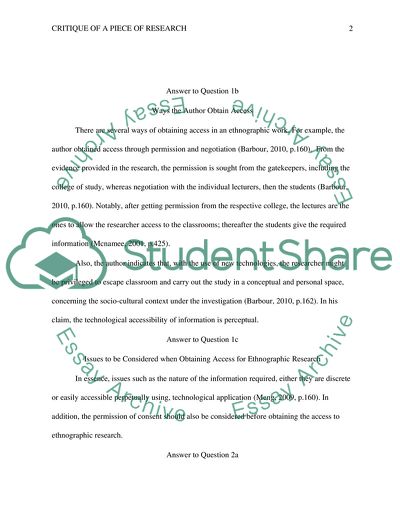Cite this document
(Critique of a Piece of Research Literature review, n.d.)
Critique of a Piece of Research Literature review. https://studentshare.org/sociology/1763273-critique-of-a-piece-of-researchbarbour-a-2010-the-obligations-of-ethnography-exploring-the-ethical-dilemmas-of-an-ethnographer-ethnography-and-education-5-2-159-173
Critique of a Piece of Research Literature review. https://studentshare.org/sociology/1763273-critique-of-a-piece-of-researchbarbour-a-2010-the-obligations-of-ethnography-exploring-the-ethical-dilemmas-of-an-ethnographer-ethnography-and-education-5-2-159-173
(Critique of a Piece of Research Literature Review)
Critique of a Piece of Research Literature Review. https://studentshare.org/sociology/1763273-critique-of-a-piece-of-researchbarbour-a-2010-the-obligations-of-ethnography-exploring-the-ethical-dilemmas-of-an-ethnographer-ethnography-and-education-5-2-159-173.
Critique of a Piece of Research Literature Review. https://studentshare.org/sociology/1763273-critique-of-a-piece-of-researchbarbour-a-2010-the-obligations-of-ethnography-exploring-the-ethical-dilemmas-of-an-ethnographer-ethnography-and-education-5-2-159-173.
“Critique of a Piece of Research Literature Review”. https://studentshare.org/sociology/1763273-critique-of-a-piece-of-researchbarbour-a-2010-the-obligations-of-ethnography-exploring-the-ethical-dilemmas-of-an-ethnographer-ethnography-and-education-5-2-159-173.


